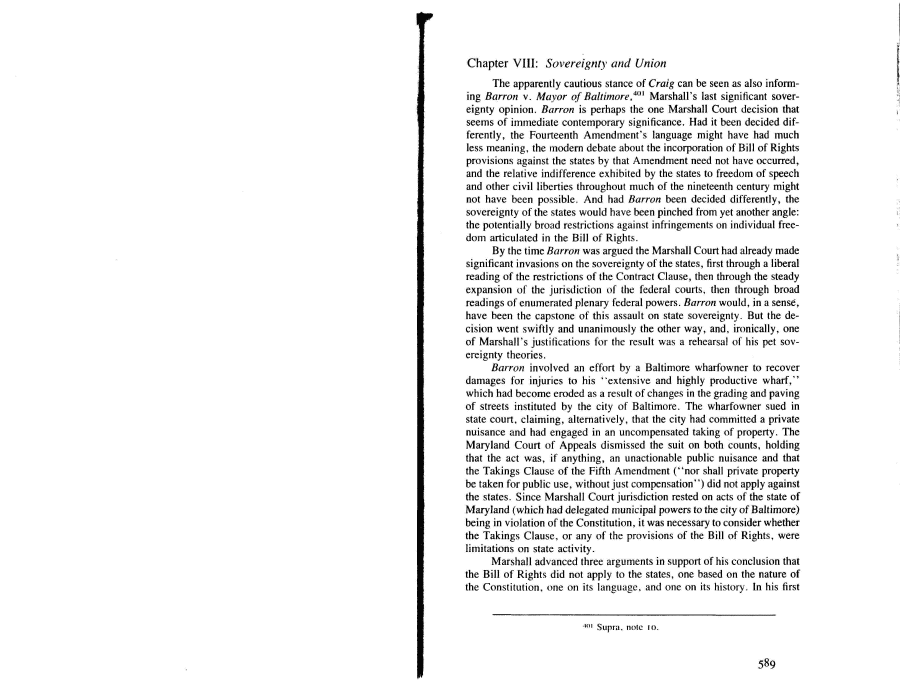|
Chapter VIII: Sovereignty and Union
The apparently cautious stance of Craig can be seen as also inform-
ing Barron v. Mayor of Baltimore *m Marshall's last significant sover-
eignty opinion. Barron is perhaps the one Marshall Court decision that
seems of immediate contemporary significance. Had it been decided dif-
ferently, the Fourteenth Amendment's language might have had much
less meaning, the modern debate about the incorporation of Bill of Rights
provisions against the states by that Amendment need not have occurred,
and the relative indifference exhibited by the states to freedom of speech
and other civil liberties throughout much of the nineteenth century might
not have been possible. And had Barron been decided differently, the
sovereignty of the states would have been pinched from yet another angle:
the potentially broad restrictions against infringements on individual free-
dom articulated in the Bill of Rights.
By the time Barron was argued the Marshall Court had already made
significant invasions on the sovereignty of the states, first through a liberal
reading of the restrictions of the Contract Clause, then through the steady
expansion of the jurisdiction of the federal courts, then through broad
readings of enumerated plenary federal powers. Barron would, in a sense,
have been the capstone of this assault on state sovereignty. But the de-
cision went swiftly and unanimously the other way, and, ironically, one
of Marshall's justifications for the result was a rehearsal of his pet sov-
ereignty theories.
Barron involved an effort by a Baltimore wharfowner to recover
damages for injuries to his "extensive and highly productive wharf,"
which had become eroded as a result of changes in the grading and paving
of streets instituted by the city of Baltimore. The wharfowner sued in
state court, claiming, alternatively, that the city had committed a private
nuisance and had engaged in an uncompensated taking of property. The
Maryland Court of Appeals dismissed the suit on both counts, holding
that the act was, if anything, an unactionable public nuisance and that
the Takings Clause of the Fifth Amendment ("nor shall private property
be taken for public use, without just compensation") did not apply against
the states. Since Marshall Court jurisdiction rested on acts of the state of
Maryland (which had delegated municipal powers to the city of Baltimore)
being in violation of the Constitution, it was necessary to consider whether
the Takings Clause, or any of the provisions of the Bill of Rights, were
limitations on state activity.
Marshall advanced three arguments in support of his conclusion that
the Bill of Rights did not apply to the states, one based on the nature of
the Constitution, one on its language, and one on its history. In his first
401 Supra, note 10.
589
|

